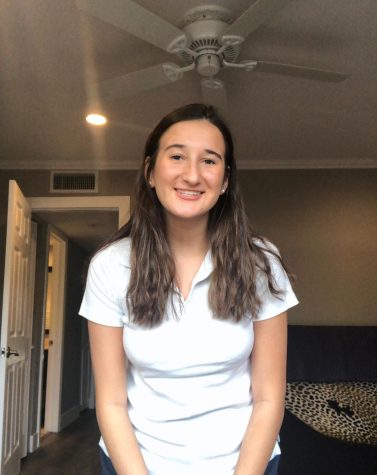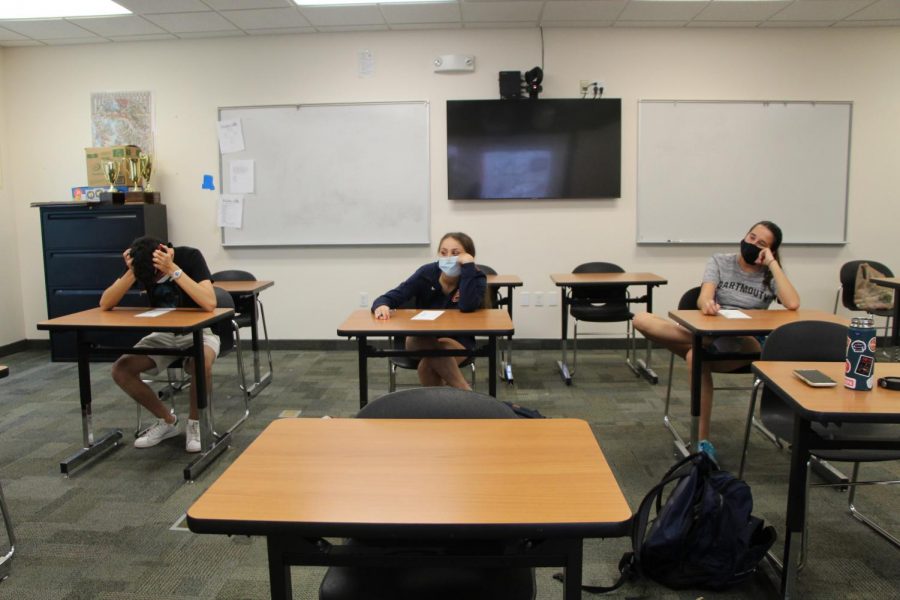College Board Accommodations Process is Flawed
Editors Discuss their Experiences with College Board Extra Time Accommodations
The College Board is the company that administers many standardized tests that high school students are advised to take, such as the PSAT, AP exams, SAT. When a student struggles with disabilities, such as visual impairments, learning disorders, and physical and medical impairments, they can apply for accommodations to even their experience compared to other students.
The College Board grants accommodations of different types. The most common is extended time, with options such as x1.5 time and x2 time. On a 60-minute subject test, for instance, time and a half would be 90 minutes and double time would be 120 minutes. However, there are other types such as larger fonts, two-day testing, and a scantron-free option.
The process to apply for accommodations differs from student to student based on disability, but it generally consists of a parent or guardian filling out a form that allows for the School’s counselor to open a request, the counselor entering necessary information regarding the accommodation such as details of student’s disability and the type of accommodation they are requesting. Most times, there must be documentation to validate the disability. Finally, the College Board reviews the application and will either grant or deny the request. If he/she is denied accommodations, the student may reapply.
As we both have College Board accommodations, we have decided to share our experiences as they are different takes on what occurred.
Time Provides Focus for Fried
I am pretty open about having ADHD; it’s common in up to 5% of adults worldwide. I lose focus, I get testing anxiety, and I have so much energy in me, it is hard to remain calm in a testing environment. These factors make me struggle, and academic tasks often become more difficult.
The biggest issue I faced in the process of accommodations was deciding I needed them. For so long, no one thought I might need help because I do well in school. There is, unfortunately, a stigma that surrounds things like accommodations in today’s society, and getting myself to talk to my doctor about my issues with testing and schoolwork was overwhelming. However, once we decided that time and a half was right for me, I did not face any challenges in my application.
My process was relatively straightforward. I did the required testing in February of 2019, had my doctor do a write-up, got teacher recommendations, and provided all of the documentation to the College Board. By early May I had been approved for extended time.
There are, of course, downsides to making tests longer. For ones that tend to be lengthy, I often find myself having to run up and down the hallway for a minute before returning, or drawing in the margins as a method to refocus my attention. The SAT, for example, is around 5 hours and 10 minutes for time and a half, and so during the test, I used the breaks given after each section to walk around the testing room and get out some of the anxious energy.
Another downside to accommodations is the backlash I sometimes face from my peers. People assume that because I am in higher-level courses, I do not need accommodations, and I only have them to do better than everyone else. However, people fail to recognize that the point of accommodations is not to give an advantage, but rather to allow students with learning disabilities to have an equal opportunity to perform well.
Accommodations allow Sophia to See Things More Clearly
I am also relatively open about having a congenital eye condition called Nystagmus as it is something that has affected my education since I started school; however, getting the accommodations necessary for me to succeed was nowhere near as easy as Molly’s process.
I started the process in October of 2018 when I applied for a larger font on my tests after struggling on the PSAT. That was approved instantaneously, but I decided this accommodation was useless and an unnecessary hassle.
In March of 2020, I decided that extended time (time and a half) would be the best way for me to have a level playing field. With the help of Dr. Taylor, I submitted my application with all the necessary information including 2 letters from teachers.
Despite my efforts, I got denied the extra time and was asked for more information. I then reapplied, this time submitting numerous papers from my neuro-ophthalmologist that validated my condition.
In May I was rejected for the second time. After a great deal of frustration with the process, I took matters into my own hands. I submitted 3 letters from teachers and 1 letter from my ACT tutor who had administered a diagnostic test for me along with information from a doctor’s visit from July and all the other required paperwork. I also called the College Board, explaining my situation, and was guaranteed a response in 2 weeks rather than having to wait another 8 weeks for a third decision.
After almost 5 months of applications and paperwork, I was approved by College Board for time and a half on standardized testing.
While Molly and I each have different circumstances under which our accommodations were approved, the textbook process remains the same as explained by Head of Student Services Dr. Amy Taylor.
“The application process for extended time starts at the school site when a student presents documentation for the need. That documentation must come from a licensed professional. Once it is established that there is a need, a formal meeting occurs. In terms of ACT and the College Board, I have to process the applications for extended time and provide the documentation, but all decisions are made independent of the school,” she said.
After handling these types of situations for nearly XX years, Dr. Taylor agrees that accommodations are necessary to level the playing field in standardized testing. She said, “In our times, there should be no stigma for needing accommodations. Almost 25% of our students need some form of accommodation at Benjamin, ranging from medical to academic to emotional issues. Under the [Americans with Disabilities Act], accommodations are a legal requirement.”
However, with accommodations so easily accessible, some students have found a way to manipulate the system so that they can gain an unfair advantage. As a result of this, Dr. Taylor says both the College Board and the ACT have become stricter in their requirements for accommodations.
While my condition is more objective than Molly’s which is more subjective, extended time is necessary for both of us to have a fair chance at success on standardized tests which is why it is imperative that resources such as extended time remain available to us.

Sophia Liporace is a senior at Benjamin and the Co-Editor-in-Chief of The Pharcyde. This is her fourth year as a member of the team and her fourteenth...

Hi! My name is Molly Fried and I'm a senior and the Co-Editor-in-Chief of The Pharcyde. I'm a member of the 14-Year Club here at Benjamin as well as the...

Evan is a senior and in his third year at The Pharcyde. He serves as Managing Editor of the newspaper and is President of the affiliated writing club....







RC • Oct 11, 2022 at 7:22 pm
College Board is perhaps the slowest, most inefficient, organization on the planet. We have been trying to get a well-documented disabled student approved for accommodation for months without success. We have been told it takes “at least 7 weeks” for processing. However, this does not take into account that College Board only accepts hard copy correspondence and processes incoming mail in around 30 days (1 month). So, the reality is that our disabled child will not have an answer for over three months and not be accommodated for his SAT this year.